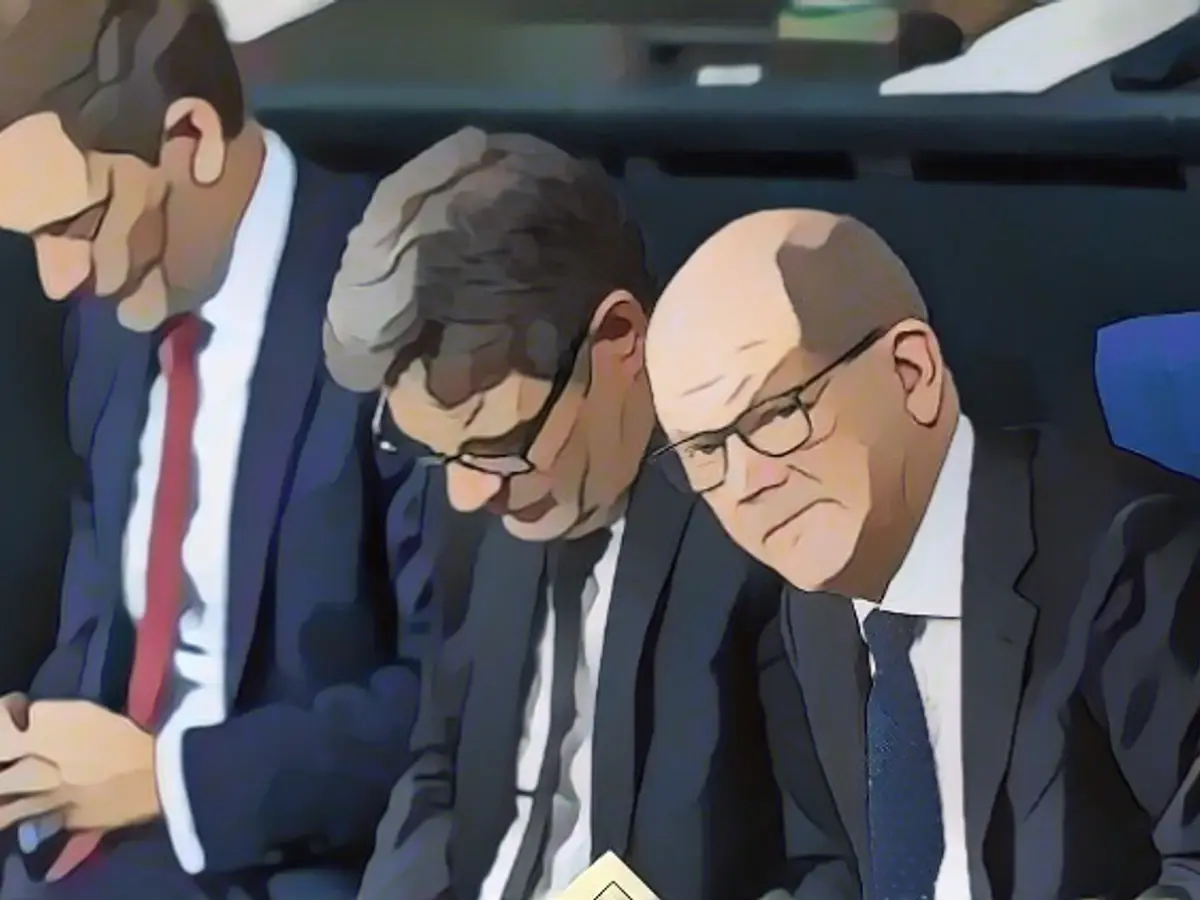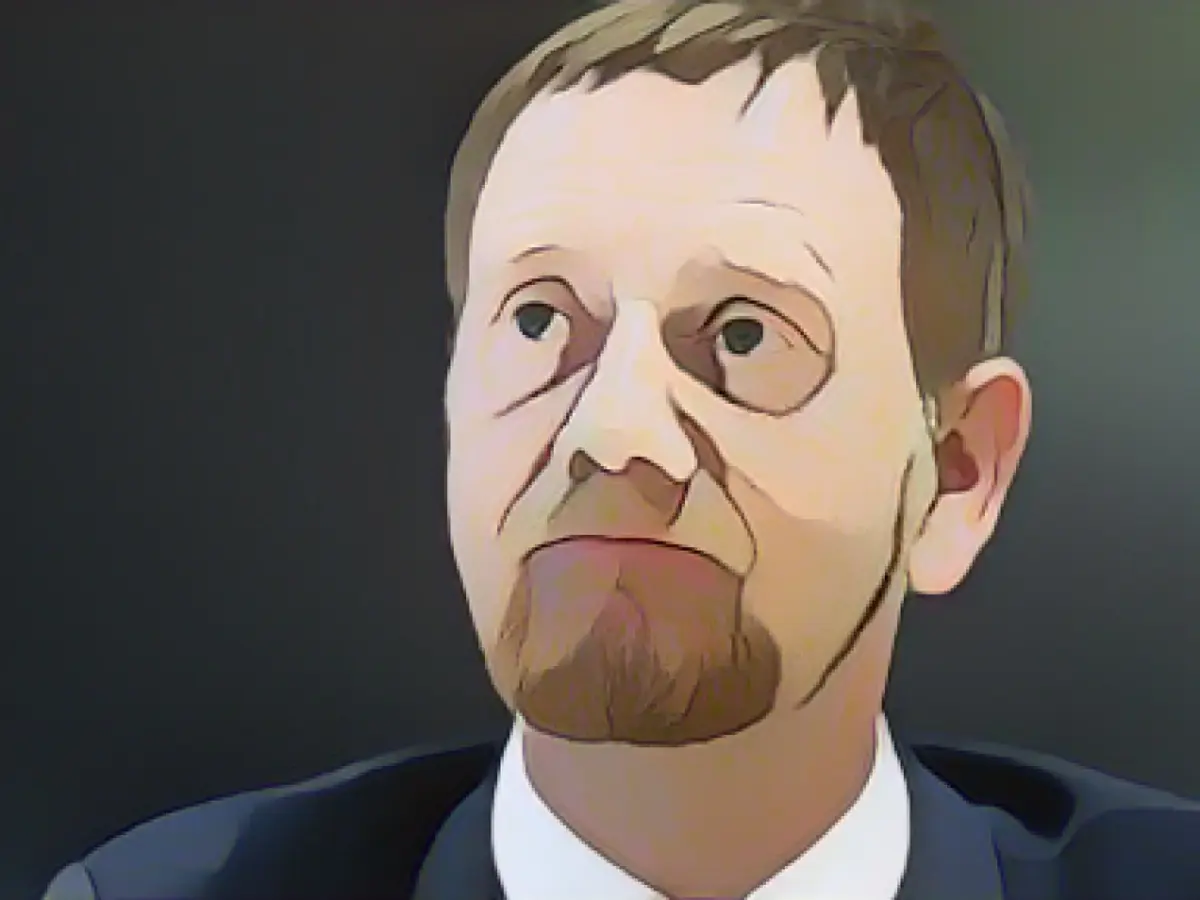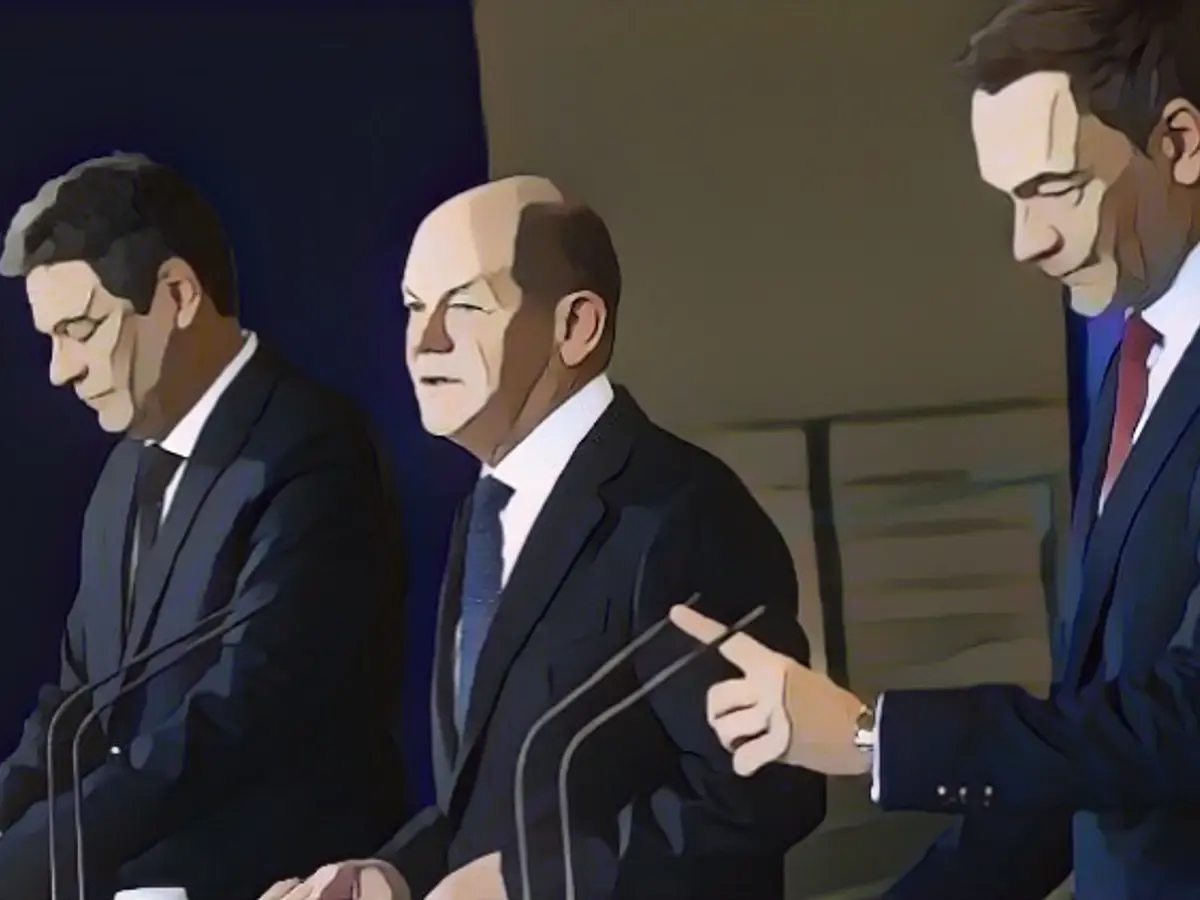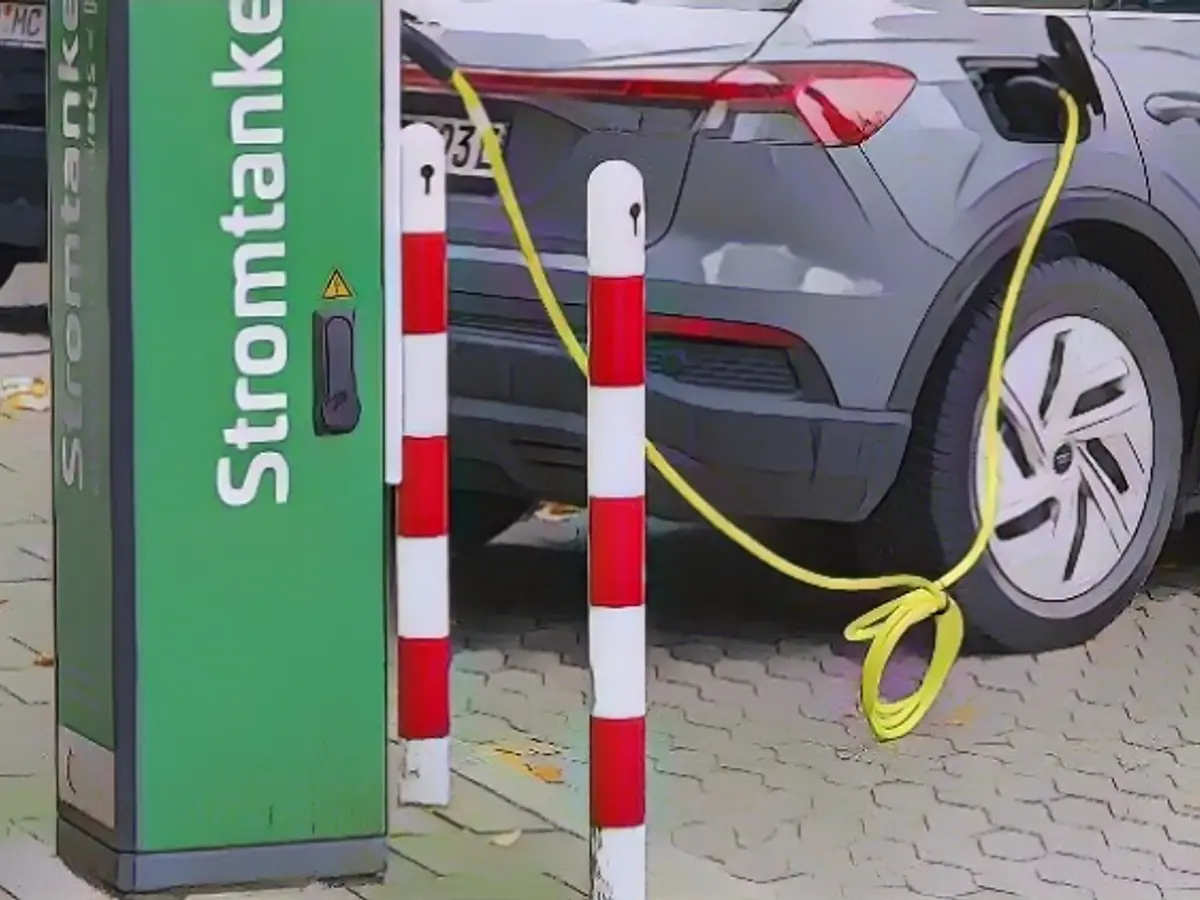Budget Agreement Saves Coalition, Troubles Ahead
The German three-party coalition has managed to secure a new budget, saving their political future despite a lackluster agreement. However, this deal will require citizens to dig deeper into their pockets, and trust in the government is on shaky grounds.
Modest Achievement
The fact that Mr. Scholz, Mr. Habeck, and Mr. Lindner have reached an agreement in such troubled times is an achievement in itself. There have been numerous compromises – small and significant – among the three parties, although not everyone will be happy with the result. Failure to reach an accord would have pushed the nation into a political limbo until new elections.
Burden Sharing
The SPD agreed to some cuts to the welfare state, the Greens are giving up on some subsidies for climate protection, and the FDP is increasing taxes and levies for various goods and services, which affect their voters less harshly. However, the majority of the budget deficit will be plugged through basic methods: cutting climate protection allocations and asking citizens to pay more.
Missed Opportunity
This new budget falls short of being a comprehensive review of government spending. "What we can and cannot afford" was the stated objective, but a real inventory of expenses was not undertaken. The government has missed a golden opportunity to streamline spending and bolster public trust.
Elections and Future Trust
The next elections are scheduled in 2025, and the conservative CDU/CSU alliance is currently leading the polls. The SPD and Greens, on the other hand, have alternative proposals for reforming the debt brake and emphasizing climate protection, but their approaches differ drastically from the CDU/CSU's.
Insights
The new budget deal has upset many Germans because it does not live up to expectations and requires citizens to shoulder additional burdens. Missed chances to cut expenditures and build trust have given rise to concerns about the coalition's effectiveness. The upcoming elections are likely to be influenced by these concerns and political agendas aimed at addressing them.
Considerations
- The European Green Deal and Germany's commitment to reach climate neutrality by 2040 should be considered in the implementation of climate protection policies.
- Changes to the debt brake and taxation structures may result in financial relief for citizens and businesses but could impact future spending on public services.
- Diplomatic relations with Russia and Ukraine influenced negotiations, and future developments in that conflict could have repercussions on Germany's political landscape.
Impacts
- Climate Protection: The coalition has struggled to fully implement its green climate and energy agenda due to political issues and court rulings. The new budget could further hinder progress towards Germany's climate targets.
- Taxation: The debt brake restriction has affected the government's ability to fund green investments and implement more ambitious fiscal policies.
- Political Trust: Instability and disagreements within the coalition and between parties have eroded public trust in the government's ability to manage the country effectively. The ongoing economic challenges have also contributed to this erosion.








